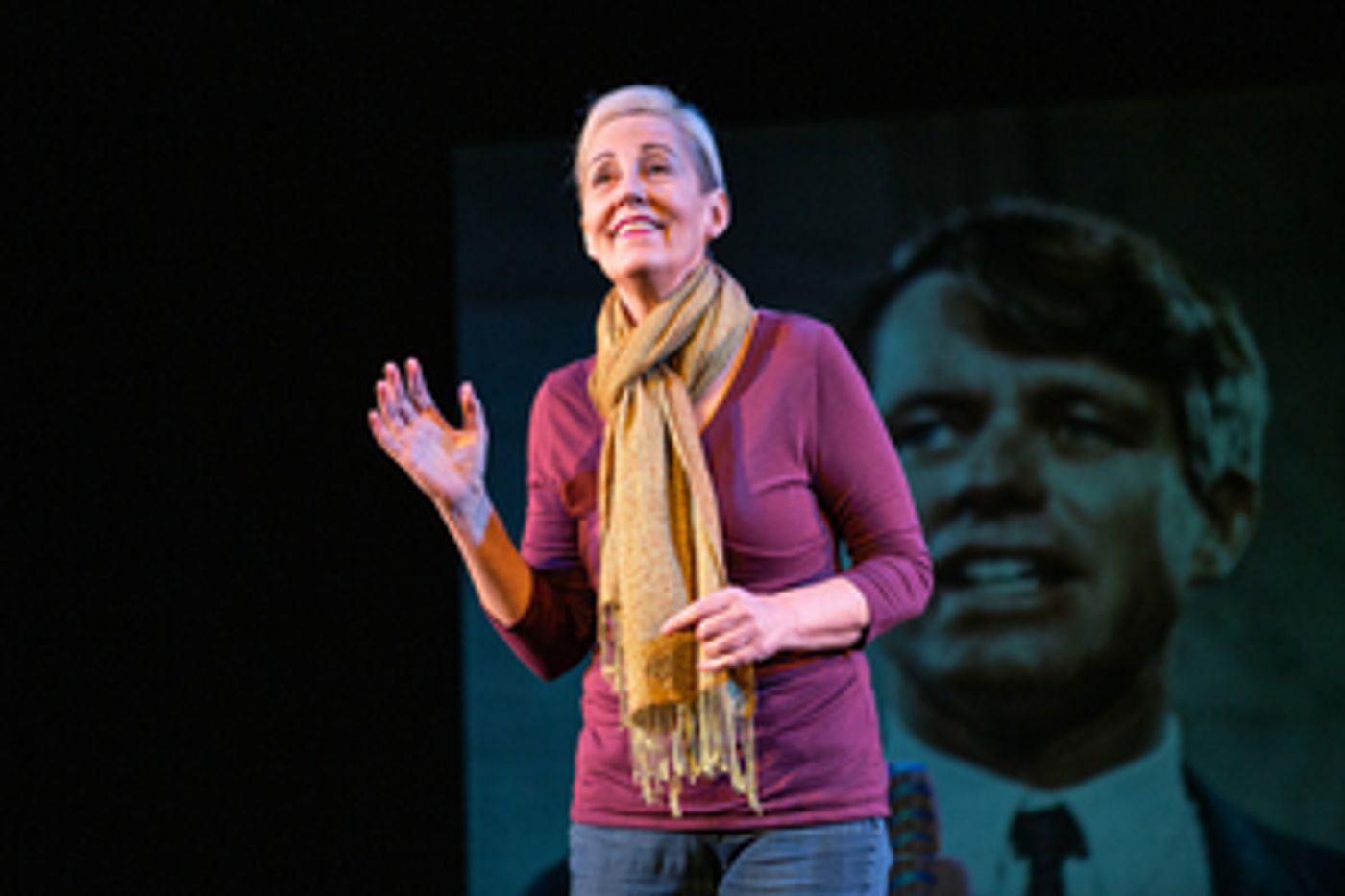Review: San Francisco Playhouse Streams Julia Brothers' I WAS RIGHT HERE
"This is what it means to be human."

(Photo: Jessica Palopoli)
Minutes into the train trip that propels the play I WAS RIGHT HERE, author/actor Julia Brothers reflects on the reflection of an across-the aisle passenger: "It's like I'm watching a movie of his heartbreak." Although simple, this cinematic analogy sets the entire kaleidoscopic 70-minute sequence of memory-linked scenes into motion. Brothers creatively personifies and ponders the people, places, and relationships that reside in the liminal space between meaning and mystery.
From her front-facing seat, Julia tells us that she is en route to see her 97-year-old mother, Lucille (aka Madré), whose rate of decline is likely exaggerated by none other than Lucille herself. When Madré's multiple daily phone calls force her daughter's hand, Julia plays the sibling card: "Mom's 'dying', can you call her?"
I've been a fan of Brothers' compelling emotional range after having last seen her onstage in New York in 2020 in A Peregrine Falls at The Wild Project. Her comedic timing modulates the poignant moments in I WAS RIGHT HERE. With an arched brow and slow syllables elongated as gracefully as her neck, she evokes her doting friend Dan's description of her: "That Julia - she's a true boheme."
"That Julia," who was commissioned to write this memory play, rewinds to select childhood moments ranging from terror (being temporarily forgotten in a car pool) to tenderness (falling in love with The Beatles and Robert Francis Kennedy). "He is everything," she proclaims. "Other grown men don't smile like that."
When her youthful optimism ("The bad guys are gonna lose; the good guys are gonna win") is shattered by the assassination of both Martin Luther King, Jr. and RFK, young Julia begins to recognize her vulnerability and place in a world that demands her full attention to self, even while on a quest to reconcile her evolving selves.
She sees her invisible self in the mirror of a bar bathroom ("Be the animal!) where she not only emerges stronger but also dances her way to disco diva personhood. She also recognizes herself in Keri Smith's book The Wander Society .
When Julia breaks the fourth wall to pose questions to the "audience" (a choice made all the more risky since the performance was filmed in an empty theatre) the close-up queries actually work to her advantage. Perhaps that's because as the story's creator, Julia embodies the script from the inside out; her self-described "lust at first sight" sparks through her gaze, smile, and a scene in a grocery store that made me laugh out loud - all from a conversation about potatoes. When she muses about men, "How I loved them all" we believe her, even though the somewhat goofy Greek poet-carpenter-god seems to be too good to be true.
Julia's relationships - family, friends, platonic and romantic - reflect the types of universal "floating outside selves" that stay with us only as long as we can remember them. In the meantime (as the voice of the omniscient-yet-invisible train agent reminds us), "We are being held between stations."
Director Padraic Lillis (who also directed A PEREGRINE FALLS) and his creative team keep the "this is not a monologue" narrative flowing fluidly with a turntable, train seat, stage fog, cool lighting, historical video projections, and some era-relevant sound design. The muffled, thumping club music is but one example of how the creative team creates the environment in which Julia travels.
Access to I WAS RIGHT HERE will be provided to subscribers and single ticket buyers as an on-demand video stream through April 17th, 2021. Tickets ($15 - $100) and subscriptions ($200 - $300) are available at sfplayhouse.org
Reader Reviews
Videos

